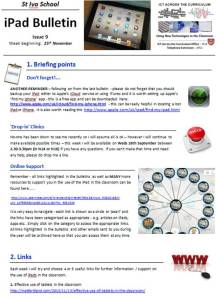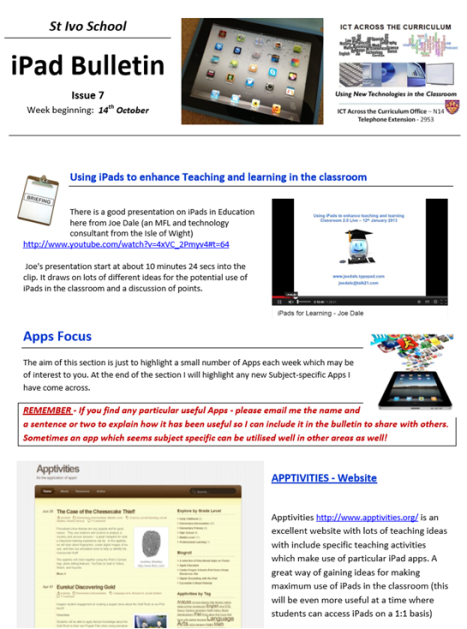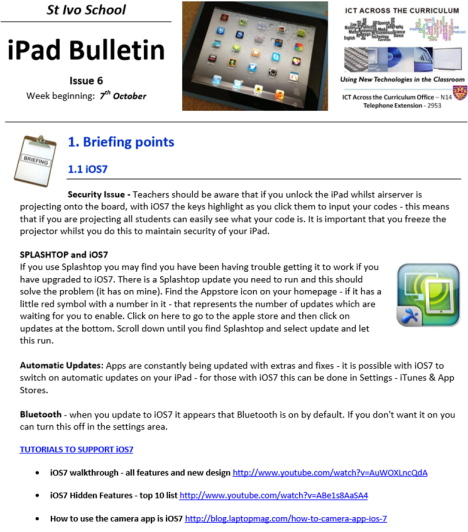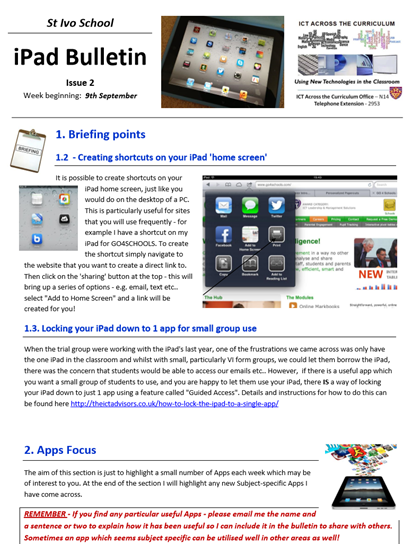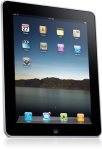As school budgets are increasingly over-stretched, with the challenge of the ever changing curriculum and the looming new exam specs (for some of us both GCSE and A Level in Sept 2016), surely TPD (Twitter Professional Development) is more important ever.
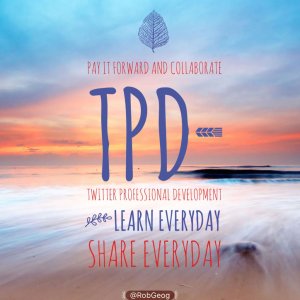
With time and budget restraints external CPD opportunities beyond school, courses etc. are far less than they ever have been for many of us. Many of us get flyers for courses on a weekly basis but how many just get binned without a second look? I suspect this is more the acceptance that there just aren’t the resources to even consider them not that they wouldn’t be welcome as fresh updates. With the pressures of the new GCSEs and A Levels fast approaching, any funding and time there is will inevitably need to be targeted at days out run by exam boards and supporting organisations to prepare for these. With TPD, ‘continuing’ professional development’ really does take place, on a ‘continual’ basis! Rather than going on one specific course, the twittersphere exposes educators to a plethora of resources and knowledge which can enrich your professional development far more (and for free!) on a daily basis.
 So why engage with twitter – what actually are the benefits? One of the best justifications is given here “Why twitter matters in education” Supporting collaboration between departments, facilitating the sharing of resources and ideas and engaging in professional dialogue not just on subject specialist areas but wider pedagogical development and education policy changes are but a few reasons ! I am very lucky to have a large department, but if you are in a small department then twitter can lead to world of possibilities and ideas that would have been difficult as a small department ploughing a lonely furrow. With TPD you can ‘pay it forward’ and collaborate – learn every day, share every day.
So why engage with twitter – what actually are the benefits? One of the best justifications is given here “Why twitter matters in education” Supporting collaboration between departments, facilitating the sharing of resources and ideas and engaging in professional dialogue not just on subject specialist areas but wider pedagogical development and education policy changes are but a few reasons ! I am very lucky to have a large department, but if you are in a small department then twitter can lead to world of possibilities and ideas that would have been difficult as a small department ploughing a lonely furrow. With TPD you can ‘pay it forward’ and collaborate – learn every day, share every day.
TPD doesn’t have to just be ‘virtual CPD’, for me it has lead to many contacts that have been followed up with emails, visits and collaborative projects and most importantly dialogue. Dialogue with other professionals with a diverse range of experience to share and from countries across the globe! Sharing ideas and discussing pedagogy with teachers from Australia, America, Indonesia, to name but a few is now part of my daily professional development.
So how do you get started with twitter? How do you really start to engage with it and for some of us, how do you convince sceptics to also give it a go! For a number of years I was that sceptic – I didn’t see how sharing my every movement in a 140 character tweet would be at all beneficial and was indeed just a waste of my time! Thankfully I listened. I realised it wasn’t about that at all. I listened and gave it a go. I realised that, like most things, it all comes down to how you use it. Social media can be used for a variety of purposes and as a professional you choose the tool which best first the purpose you wish to use it for. I use Facebook for my ‘social connections’ and twitter is my professional development outlet.
Yes you can easily spend hours on twitter but “why would I? I have a life” is often used as just an excuse not to try it. Time is undoubtedly the biggest barrier for all of us, with so many pressures, but you don’t have to be the person that tweets frequently or is always sharing resources. You can be someone that checks once a week when you might have 5 minutes. If you choose start by simply following a few people with similar interests / subject focuses it can have quite an immediate impact in terms of practical ideas that you can try out in the classroom. If it doesn’t work after having given it a proper go (investing just a little time to use it properly) then you haven’t lost a lot and you can go back to what works for you but I firmly believe that TPD has a lot to offer and shouldn’t be dismissed (or worse mocked) without at least giving it a go!
There are so many excellent starting points for teachers wishing to engage with twitter – here are few of the best ones…
10 steps to creating the perfect educational twitter account
10 Tips for Tweeting Teachers
Beginners Guide to Twitter
A longer list of useful links to support the use of twitter in education can be found here supporting both beginners and the more advanced.
Don’t forget that twitter can also be used in the classroom – not just for professional development. Many educators across the globe now utilise twitter in and out of the classroom (remember to check your own school policy with regard to twitter use). This site provides links to 100 ways to teach with twitter.

Filed under: Professional Development, Twitter | Tagged: CPD, Pedgagogy, ProfessionalDevelopment, Twitter | Leave a comment »
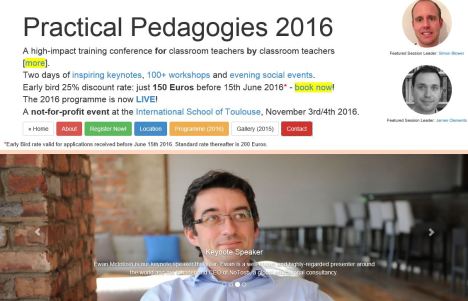




 So why engage with twitter – what actually are the benefits? One of the best justifications is given here “
So why engage with twitter – what actually are the benefits? One of the best justifications is given here “
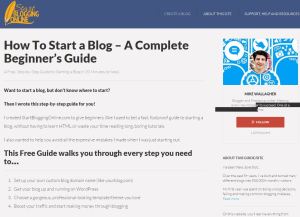 Blogging is a fantastic tool for supporting teaching and learning as well as for personal professional development and reflection on areas of particular interest. With many online blogging sites available such as wordpress.com you don’t need to be a computer expert or understand .html to set up your own blog. If you are interested in keeping a blog or using blogging in the classroom check out
Blogging is a fantastic tool for supporting teaching and learning as well as for personal professional development and reflection on areas of particular interest. With many online blogging sites available such as wordpress.com you don’t need to be a computer expert or understand .html to set up your own blog. If you are interested in keeping a blog or using blogging in the classroom check out 